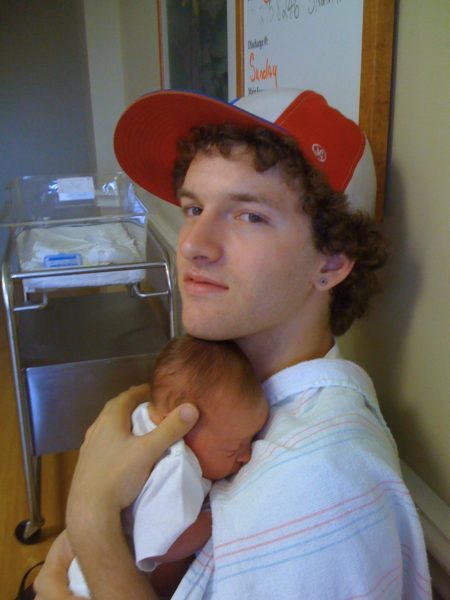Me: Let’s talk about a disorder that a lot of people suffer from greatly and that’s social anxiety. For example, some people have moments when they feel anxious at a party, but some people are very disabled with this disorder that they can’t even leave their house. Tell me about the spiritual basis for that if you could, Erik.
Erik: Okay. But let’s just remind everyone that there is a huge spectrum of anxiety. There are the small anxiety attacks where people can manage it as it comes, get around it and move on, and then the other extreme is having such anxiety that they design their whole life around that dense emotion of anxiety or panic. With every individual case, the spiritual lesson behind it is going to be very unique. We’re just going to talk about it in general. The blanket answer—
Jamie (chuckling): He pretends to throw a blanket.
Erik: In most cases, the anxiety is linked to being extremely sensitive energetically so the person can feel, absorb, take on a multitude of energetic patterns, you know, emotions from people, from the room that they’re in, from the history of what was there, for the future—what’s going to occur there, cuz we gotta remember, time is stacked. It’s not linear. We can get into that later. With this sensitivity, it’s very difficult for a person to understand what is their emotion, what are they going through and what they’re being dosed with from their external environment. Most of the time, people can’t differentiate “what’s mine; what’s yours?” And this bleeds into this overwhelming sensation. They can’t even handle a conversation; they can’t change (unintelligible), they can’t bring in something new from the outside. It can be extremely paralyzing. What I would say for that is, look at it more as a gift.
Jamie: Ooo. I remember being told that once, and I got real pissed.
Erik: It’s hard to see something that’s so paralyzing being such a gift, but you can learn how to protect or shut down your ability to receive energetic patterns or emotions, thoughts—everything from everybody else without having to compromise your life. You can protect yourself. You don’t have to change your posture; you don’t have to put your head down; you don’t have to wear headphones all the time; you don’t have to listen to music; you don’t have to be a recluse.
(Pause)
Jamie (to Erik): Uh, uh. I don’t know if I want to say that.
Me: Come on, Jamie.
Jamie: Well, he’s saying that backing off, being a recluse, choosing not to go out and feel life and enjoy life is the wimpy way out. He uses the word—I can’t say the word.
Me: Okay.
Jamie: But it begins with a “P”.
Me: Okay, I know. I understand. Gotcha.
Jamie: I told him that if somebody told me that, I’d get angry.
Erik: Good. Then I hope you can use that anger to power you to learn how to do something different. I’d challenge that person to check those waters out to see if that shit really does work. You know, hook up with someone who knows energy. Get a –
Jamie (to Erik): What is that? He’s showing me the—oh! The biofeedback. They have those gloves that you can put on; you plug it into your computer, and you can learn how to control your heart rate and thoughts. It gives you this really cool visual and patterning on the computer.
Erik: It’s just like a video game. I would purchase that. You’re still with a computer; you’re not with a person.
Wonderful. How many people can afford that?
Erik: See what you can do for yourself, and if that’s showing progress for you, then I would find a person to interact with that knows this shit and can train you to learn how to protect yourself without having to shut down or pull in. You shouldn’t let this paralyze your entire life. Now the small anxiety attacks, those can be triggers. Those can be loudspeakers for certain circumstances happening in your life that you’re choosing not to address well or not handle so well, and—
Me: For example?
Erik: Oh, for example…I don’t know. You give me an example, Mom. What do people stress out about?
Me: Money? Well that’s probably a chronic issue.
Jamie laughs.
Me: I don’t know. When your kids act up in the mall, and everybody’s watching you. You think of an example, Jamie.
Jamie: My example is going on stage.
Me: Mm hmm! There we go!
Jamie: Like when people have to go in front of the classroom, give a speech or be in front of their peers. Something like that. And you have an anxiety attack.
Erik: The example of being in front of a group of people—you have an attack; you sweat; you start to forget things; you panic and you want to shut down and give up. Your throat tightens—all the physical responses, right?
Me: Mm hmm.
Erik: Physical responses are coming because you don’t know what the fuck is going on. You know what you have to do, but you’re not in control of what the response is going to be, so your belief system is that if you’re going to be good, the response will be good. But if the response is bad, then you are bad, and how are you going to change that? That’s bullshit! You’re letting this attack come on, because you’re giving power to something else that’s not you. That’s when the bullshit starts to happen. You’re actually in control. Even if you mess up, and you step back and you smile, and you say to them, “Oh, I messed up. Let me do it again,” people are going to be on your page. They’re going to enjoy that you messed up, that you admitted it and that makes you real. So I don’t know what this need is for people to put on a certain face and play a certain role. You gotta just be yourself. If you’re going to be yourself, that means you gotta pay attention to yourself. Then you’re not going to have these fucking anxiety attacks! What’s so messed up—
Jamie: Okay, “What’s so fucked up—“
She still has trouble with those f-bombs.
Erik: Is that you can have these kinds of anxiety attacks a week before you’re even in front of the classroom or in front of your peers in your office, and you’re lying in bed and all of a sudden it comes on. And you’re like, “What’s this. What’s it coming from. I have no idea.” Bullshit. If you sit down and finally consciously think about it, you know exactly what it’s coming from. Your subconscious and all the other parts of your body are working like fucking mad, because this is on your plate, and you’re either terrified of it cuz it’s a mystery or you don’t know what it is or you’re not in control over it, but all of a sudden it comes to the surface as a physical reaction. Let me tell you, people—
Jamie (laughing): he’s kind of yelling. His fingers out like this (She jabs her index finger out in front of her with each word he says and scowls.)
I giggle.
Erik: You don’t have to have a fucking physical reaction to say that you’re having a panic attack. You don’t wait for you body to kind of pull it to the surface and say it’s yours. You already know it’s there because your mind is running it, your heart is pumping harder or your emotions are running it. Under the surface, that’s the time you address it. You don’t wait until it just comes out. That’s ridiculous. That’s the whole, “Ignorance if bliss” or “Oh, if I ignore it, I really don’t have any, well I don’t really have anything I can’t do with It.” that’s bullshit. You’re playing dumb. Why are you playing dumb to yourself? Don’t play dumb! Go get on the Internet. Go learn. Go ask somebody. Reach out. Try something different. (Throwing his arms out) We’re all in control! C’mon!
Me: So this really goes to all forms of anxiety, what you’ve said?
Erik: Yeah.
Me: Of course these things could be related to past life issues, right? I mean the triggers?
Erik: The triggers could be related to it, but the actual panic attack is because of the unknown. You feel out of control and you don’t feel like you have a say so in how it’s going to work out or play out, but it can be a trigger from a past life.
Me: And a lot of this is about judgment—an external source judging you. And if you get over that, um, that means you have to get in the mindset that, “Hey, I am in control and the external source is not!” Is that what you’re sort of saying in a nutshell?
Jamie (laughing): He said you said “nut” and yes, that’s what he’s saying.
Me: I knew you were going to get there. I just knew it. You’re so predictable, Erik.
Sigh.
Jamie laughs.
Me: You really are.



